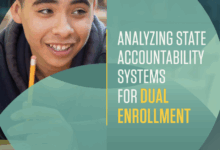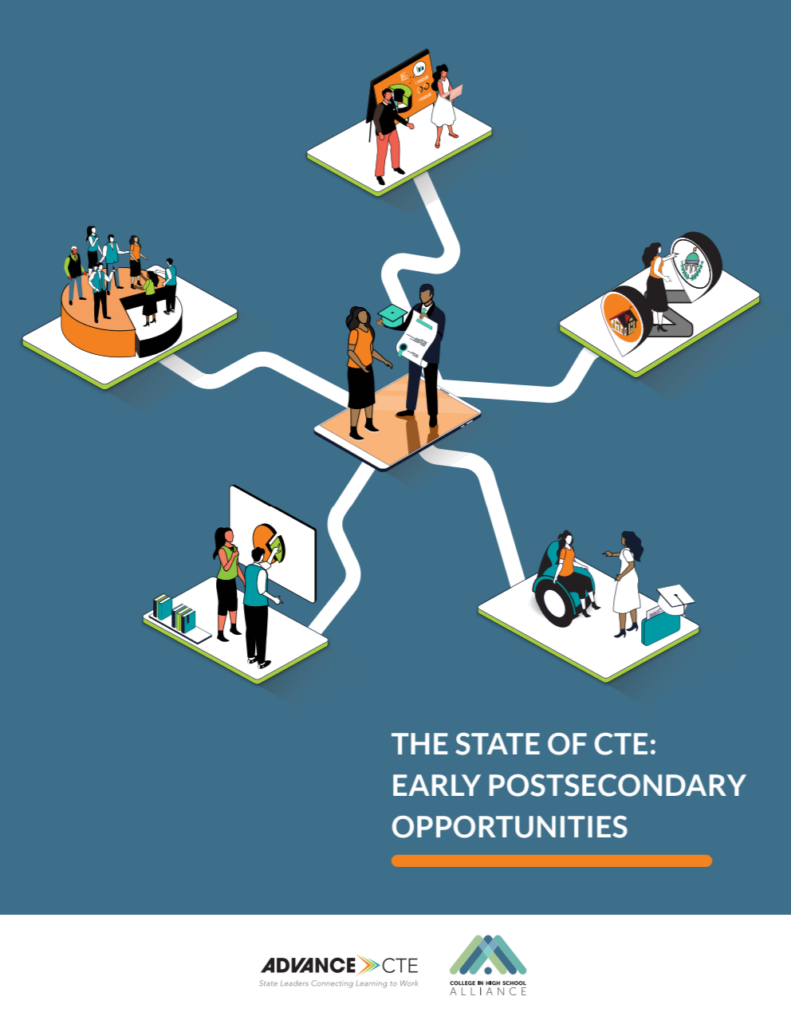Over 5.5 million learners participate in early postsecondary opportunities (EPSOs), which range from dual and concurrent enrollment to credit by examination opportunities such as Advanced Placement courses. One third of all EPSO enrollments occur through Career Technical Education (CTE) programs.
While these programs are often locally administered, state infrastructure and collaboration can provide much-needed capacity to remove barriers to program participation and completion as well as advance state postsecondary attainment goals.
Since 2013, Advance CTE has released seven State of Career Technical Education (CTE) reports that provide a timely deep dive into key components of CTE policy and practice informed by state CTE leaders.
Advance CTE, in partnership with the College in High School Alliance, released The State of CTE: Early Postsecondary Opportunities. This 50-state report reveals key findings on how EPSOs serve CTE learners and provides recommendations for state leaders to leverage state infrastructure and collaboration to advance equity in these experiences.
Key findings include:
- Expanding equitable access to CTE EPSOs is a top priority, but challenges remain in supporting access for historically marginalized learners.
- More learner supports are needed to expand equitable access to and success in EPSOs.
- Many states collect data on CTE learner participation in and outcomes from EPSOs but do not report data disaggregated by subgroup and by program.
- States have a critical role to play in improving credit transfer efficiency for CTE EPSOs.
- Recruiting and training qualified CTE EPSO instructors is a top barrier to expanding CTE EPSOs.
In addition to the report, a stand-alone executive summary provides an overview of the report’s findings and recommendations.







